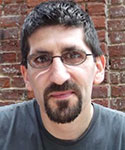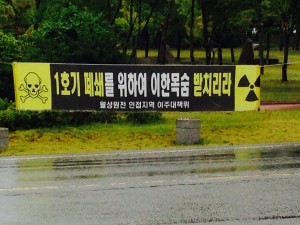The Bard-Yonsei Workshop and Tour was a rare opportunity in terms of a personal introduction to East Asia and several local environmental issues in global context. I had never been to East Asia and, despite sustained interest, did not have personal local experience with the region. The tour made this possible in a wonderful way. I want to personally thank the organizers of the tour for a) the excellent layout of the weeklong tour, consisting of an initial workshop that brought together experts from multiple disciplinary and institutional backgrounds, followed by three days of sustained field visits that, in my view, worked very well, b) the exceptional leadership of Bard and Yonsei organizers including Eban and Chungin Goodstein, on one hand, and dr. T.J. Lah and his graduate students on the other, and c) the wonderful, remarkable staff hired to assist the group during the site visits, which included three KFEM members from central and local offices, a gracious tour guide, and our intrepid driver.
My interest in this tour was two-fold. The first stems directly from my interest in global urbanism. Seoul is not only an important case in the burgeoning urban literature on global cities, but also one outside the traditional research sites of New York, London, and Tokyo. Last year at Hobart and William Smith, I developed a course on Global Cities, which introduces students to the main body of literature developed from the 1970s onward, and concludes with case study research and presentation by students. As a direct result of this workshop, I will introduce Seoul as a terrific candidate for student research and writing. Importantly, due to the excellent conference/travel split structure of the workshop mentioned above, I will be able to guide students in recognizing the global-local dynamic in the relationship between large centers of global capital and central government policy such as Seoul, and local lives which are impacted by this development in terms of the environmental impact we experienced firsthand. Lastly, this workshop provided material and familiarity to build a teaching unit on climate change in other courses such as my 200-level course Sociology of City.
My second interest in this tour is related to the restructuring efforts regarding Hobart and William Smith Colleges’ Urban Studies program. I was hired two years ago as an assistant professor of sociology at HWS, and as current chair, I am at the forefront of the restructuring of the program as it manages a transition from a retiring faculty cohort to a newer one. Part of that effort has been the beginning of a conversation between members of Urban Studies and Environmental Studies Programs here at HWS. The purpose of these talks has been to recognize how we can join forces to serve common interests, but also recognize what each program has to offer that is different from this other. Although less directly tangible in the classroom setting, this tour has given me a better sense of how Urban Studies and Environmental Studies can collaborate in developing multidisciplinary approaches to issues such as those we learned about in the trip.


